Building Community through Cooking
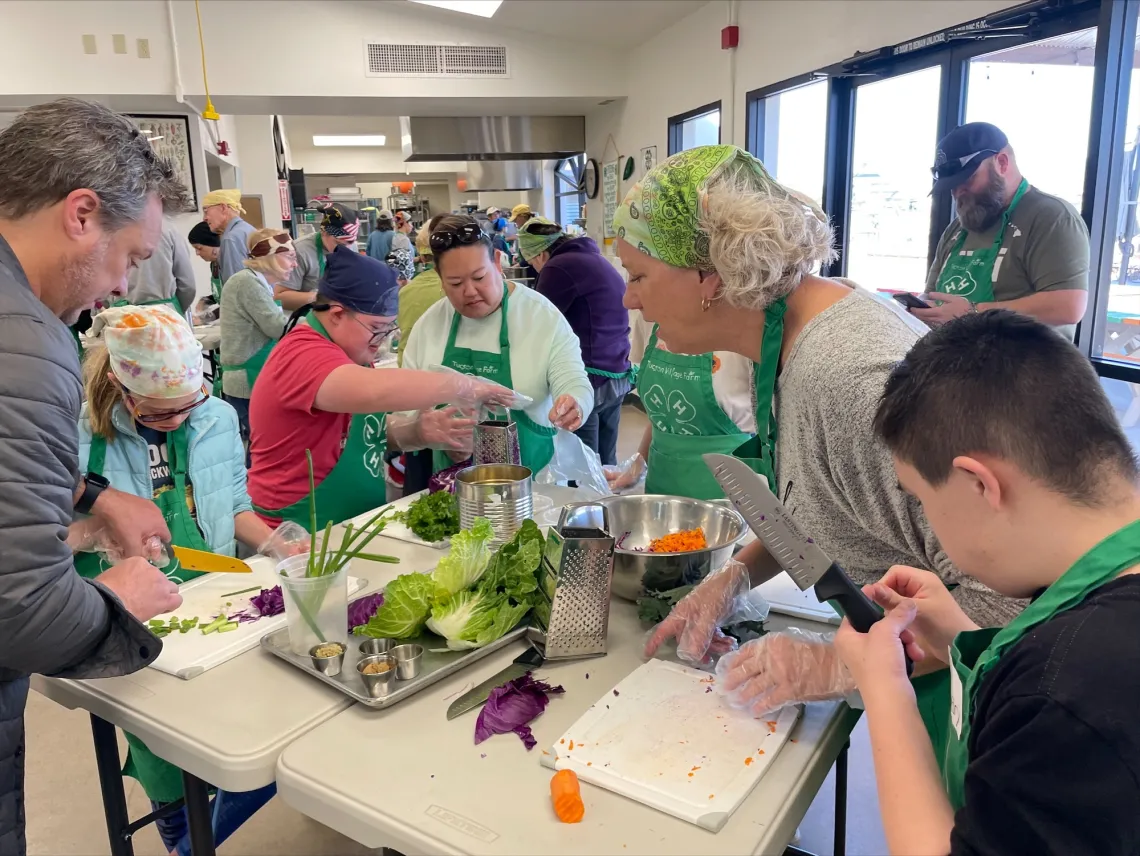
This past month, the University of Arizona Sonoran Center for Excellence in Disabilities, the Southern Arizona Network for Down Syndrome, and Tucson Village Farm partnered to host a vegetarian cooking class program. The class was designed to be inclusive and intergenerational, with participants’ ages ranging from 11 to 80.
As a “seed-to-table” program that aims to not only educate community members on growing and preparing fresh foods, but also promote leadership abilities and community engagement, the Tucson Village Farm was the ideal partner for this endeavor. The skills fostered during these four weeks are the foundation to a healthy life that will benefit the diverse group of participants, including many with intellectual developmental disabilities.
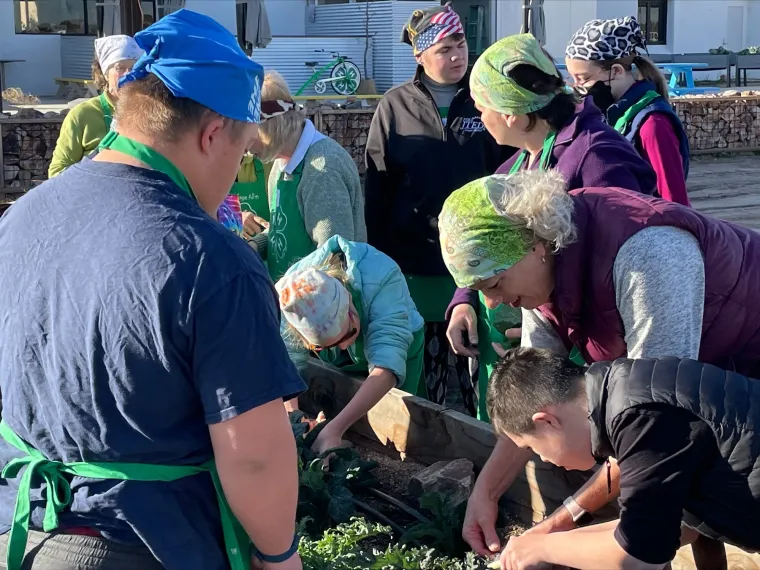
Over the course of four weekly sessions, starting Saturday, January 21, 2023, participants from the Pima County area engaged in nutritional talks, cooking lessons, work in the garden, and meal preparations. The first week covered the cutting techniques and produce needed for vegetable soup, while the following meals involved omelet and salad preparations. For just $10 per class, the program provided lifelong resources on kitchen skills and the importance of healthy eating. The final week took place over Zoom on Wednesday, February 8th where the participants conducted a friendly Iron Chef contest.
“The participants would meet at Tucson Village Farm, they would pick and harvest their own vegetables, and then they’d go back into the kitchen and begin preparing a meal," explained Brandy James, PhD, Sonoran Center's outreach and community education director and one of the co-organizers of the event. "So they’re learning cooking skills, knife skills, and just building community around cooking and the enjoyment that cooking and eating brings.”
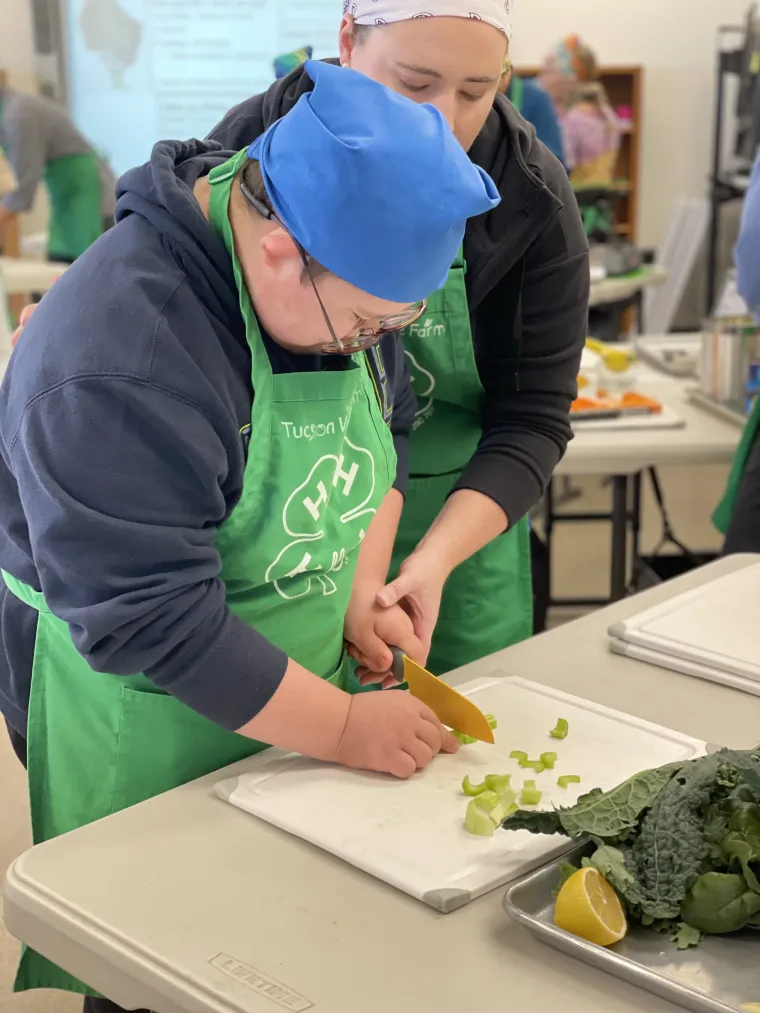
The group setting that involved both participants, parents, and community workers brought a new perspective of each other to one another. By recognizing that people with intellectual disabilities are very much capable of handling kitchen tools and vocalizing their opinions about the different foods, we can shed light on their uniqueness and intelligence that is often overlooked.
Participants were ecstatic to learn about healthy eating and the process of produce becoming a delicious meal. During the final Iron Chef Zoom contest, participants carried over their learned skills to their own kitchens. Some even independently recreated the vegetable soup and salad recipes that were taught at the farm. By including additional produce and altering the ingredients to their liking, participants realized that healthy cooking can be fun and customizable to one’s palette.
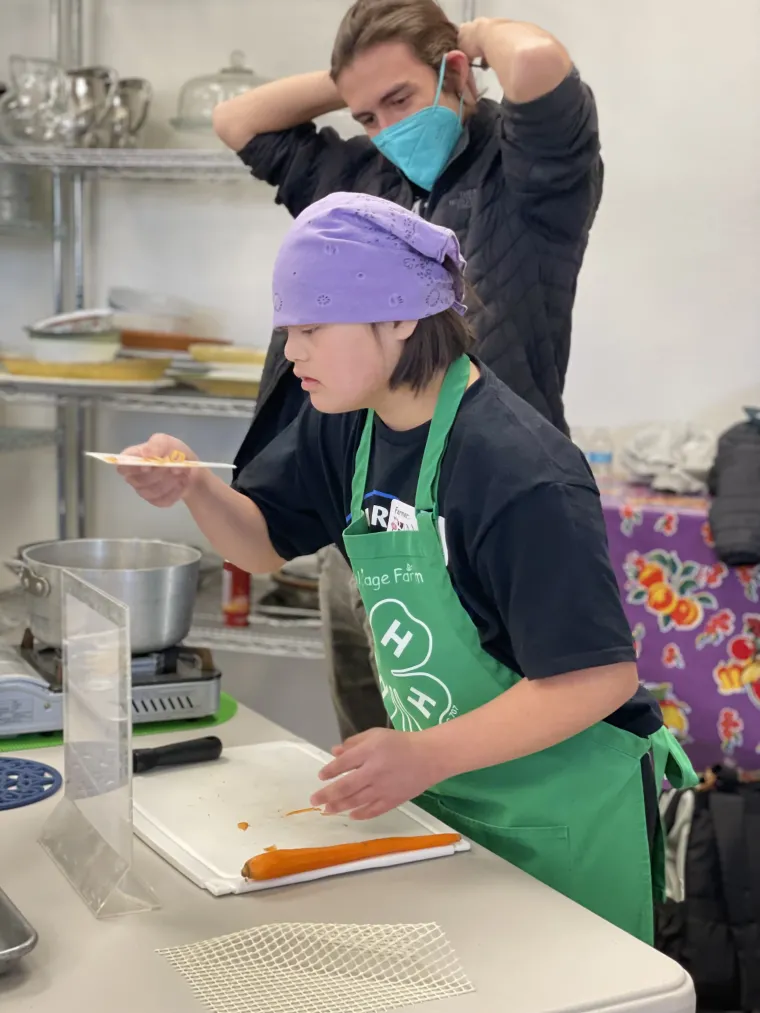
One parent’s response vocalized her son’s eagerness to engage in the Tucson Village Farm cooking classes. “Again, this was a huge success for Zach. He clearly is motivated working in groups. Hoping more events similar to this one might be possible for our teenage group.”
Another participant shared, “I learned how to peel and cut. I had fun doing it.”
Collectively as a community, investing in programs that provide educational resources is the preventative route we must take to better societal health. In an interview with co-organizer and Sonoran Center affiliated faculty, Duke Duncan, MD, he highlighted the importance of implementing a vegetarian diet from a young age. He described that from a physiological standpoint, beginning this routine at infancy, even at the start of a mother’s pregnancy, can reduce the risk of long-term health effects.
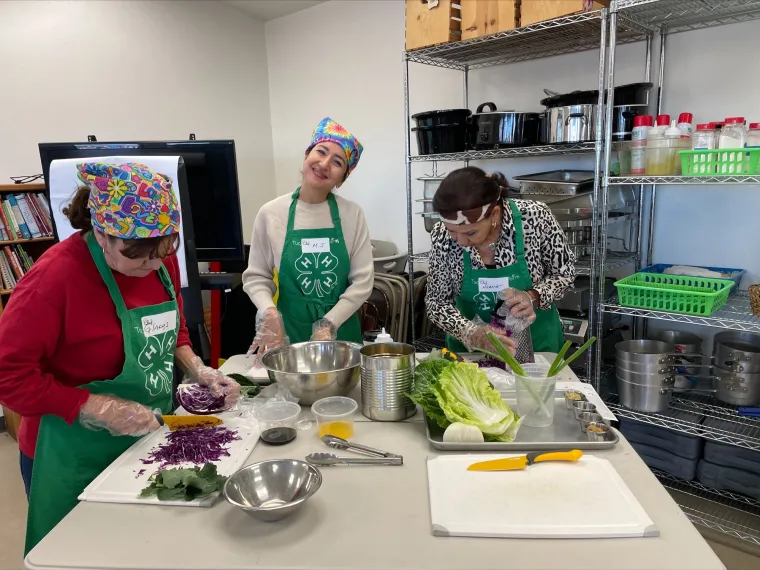
“Obesity is based on two factors, the number of fat cells you have and the size of the fat cells. The number of fat cells is determined by the time you are two years of age, sometimes it is determined during pregnancy,” said Dr. Duncan.
Oftentimes we place blame on adults for maintaining an unhealthy lifestyle, yet their childhood habits of high inflammatory and sugary foods are dismissed. If we can predetermine a newborn’s fat cells whilst instilling healthy dietary patterns, we set our future generations up for success. Children and parents especially need the positive encouragement to implement whole foods and vegetarian options into their diets. Especially in this high prevalence era of obesity, diabetes, and more, there must be a primary prevention attitude to end these chronic diseases.
The public health initiative that organizations like the Tucson Village Farm, Southern Arizona Network for Down Syndrome, and the Sonoran Center have prioritized will bring long lasting effects to the health of the community. This program has revolutionized the approach to community education and engagement by encouraging the capabilities of those who want to learn. The lessons that the Tucson Village Farm not only expanded horizons by bringing together diverse community members but may have also planted the necessary seed to live a healthier lifestyle.
